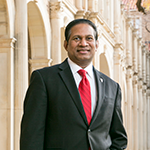This is why the dean at Dartmouth College, who served with him on a student board handling honor code violations, suggested that he should consider becoming an attorney to help others work through difficult challenges. It was an idea that stuck. Waxman is now senior vice president and general counsel of Eisai, where he is responsible for the stewardship and direction of the legal, government affairs, and public policy matters at the company.
For Waxman, the most fascinating part of his job is the daily interactions with people, and in particular, his interactions with his team. The general counsel says he has had both good and bad experiences with team leadership, but with experience comes wisdom.
“My first experience in house, I was like an over-enthusiastic kid with all of these big ideas about making changes,” he says. “I thought my enthusiasm was compelling, but the first time I did my 360 review it was pointed out to me that I wasn’t being mindful of how the changes I was pushing for impacted others. It was eye-opening and a great lesson in helping me to understand how what I do and the decisions I make directly affect others.”
Waxman’s approach at Eisai is very team-centric, a requirement given the tall order he must fulfill each day. “We need to help our clients achieve their objectives while continuing to strengthen our health-care mission, which is putting patients first,” he explains. “We’re doing both all the time and at the same time.”
The general counsel says the whole—his team—is greater than the sum of its parts, and that he has a “fantastic” nine-member leadership team. “The two things that separate them from everyone else is their dedication to the company and its mission, and their values,” he says. “We’re talking about good-hearted, sharp people who have the best interests of patients in mind. They take ownership of their work and, because of that, they are very proud of the company and the ways in which they contribute to its success.”
An important factor in the team’s success is that Waxman encourages an atmosphere in which decisions can be challenged. While he says there’s a collective sense of objectives, there’s also an understanding that sometimes answers don’t come easy. “The team is diverse and it does well to challenge decision making and what’s sometimes too quickly believed to be the ‘right’ answer,” Waxman says. “Having a diverse team who challenges you is an importance force, both as a law and government affairs team and, more largely, for the company. Having a highly effective team—a bright team with a sense of purpose—leads to better outcomes for the company.”

